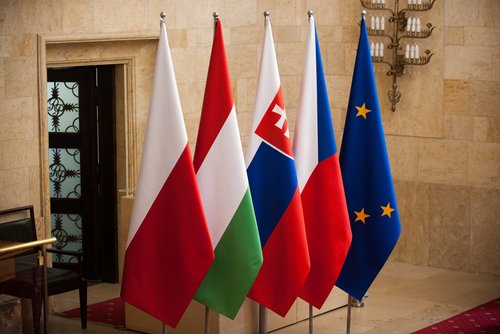
Natalia Routkevitch — How have the countries of Central and Eastern Europe traditionally aligned with Washington reacted to the first months of the second Trump presidency?
Jacques Rupnik — Reactions in Eastern Europe are not the same everywhere. Positions vary, but, to simplify, there are two opposing poles embodied by two major figures: Viktor Orban and Donald Tusk, at the head of Hungary and Poland respectively. This divide already existed before the war in Ukraine, but the war has widened the gap. It has been further exacerbated by Donald Trump's return to power in 2025, as well as by diverging views on the question of “illiberal democracy.”
In Central and Eastern Europe, there are opponents of the American president’s foreign policy, but also staunch supporters and partisans. Back in 2016, the day after Trump's first election, Viktor Orban declared in an interview with the Daily Telegraph, "With Brexit, we opened the door. With Trump's election, we have crossed the threshold. Liberal non-democracy is over,” before concluding, in a burst of exaltation: "What a day, what a day, what a day!"
Over the years, Orban has forged strong links with Trumpist conservative circles in the USA. Throughout Joe Biden's presidency, he continued to attend American conservative gatherings such as CPAC (Conservative Political Action Committee), even presiding over its annual conference in Budapest in 2022; he was interviewed by Tucker Carlson; (1) and he met with Trump. When he took over the presidency of the European Union in the second half of 2024, he traveled to Kyiv, Moscow, and Beijing; to Washington for the NATO summit; then to Trump’s home in Mar-a-Lago. He sought to position himself as the European intermediary between Russia and the United States, and as the potential leader of the Trumpists in Europe. A year ago, he was the first to adopt the slogan MEGA - Make Europe Great Again - echoing Trump's MAGA.
The opposing pole is made up of East European countries which see the measures taken and promised by Trump as a betrayal, and as a threat to the continent's security. Until 2025, these countries generally followed Washington's lead, regardless of who was in power. Unlike Western Europe, where Trump had long been a cause for concern, in the East his excesses were relativized, viewed as mere campaign excesses, or as an understandable reaction to the excesses of liberal progressivism and wokism.
But with Trump-2, the game has changed. His radical shift sent shockwaves through Eastern Europe. Many leaders had failed to grasp how much weaker the transatlantic link had become, and they saw its potential loss as an existential threat. The American pivot towards Russia over the Ukrainian conflict, along with the change in attitude which leads the US to treat Europe as an adversary, convinced the most pro-American countries in the EU to rethink their attitude to American policy.
N. R. — How did the states in this region perceive the United States and NATO in the past? How has this perception …
This website is freely accessible. To continue reading, you need to register an account.
I already have an account
I create my account
This will be your personal account where you could consult anytime :
- Order history
- Links to purchased magazines, articles, or interviews
- Personal informations













